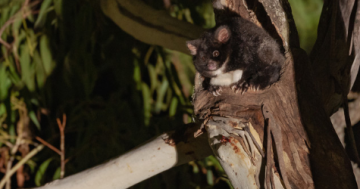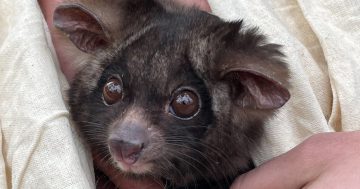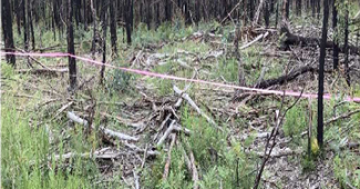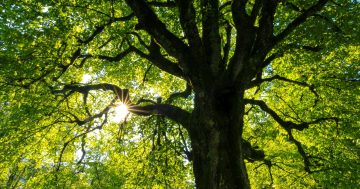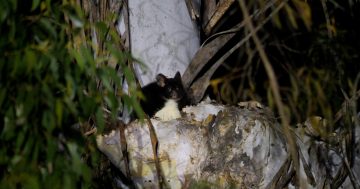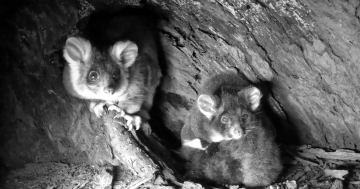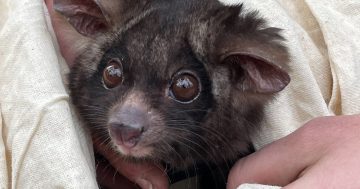
Dr Kita Ashman releases a GPS-collared greater glider in the Tallaganda State Forest. Photo: World Wide Fund for Nature-Australia.
Logging in parts of a southeast NSW forest has been ordered to stop after the body of a dead greater glider, an endangered species, was found near the harvesting operation.
Nature advocates were shocked harvesting had been taking place in Tallaganda State Forest, which sits beside Tallaganda National Park and is about 60 km southeast of Canberra.
World Wide Fund for Nature-Australia (WWF) conservation scientist Dr Kita Ashman said she and other researchers spent months in the two forests and recorded 96 greater gliders over two nights of spotlighting.
“It was incredible. It’s the only place I’ve ever seen where greater gliders were the dominant species,” she said earlier this week.
“In most other places where greater gliders were once abundant, they are disappearing.”
The WWF made a complaint about the operation to the NSW Environment Protection Authority (EPA), which ultimately issued Forestry Corporation of NSW (FCNSW) an immediate stop work order to cease harvesting in parts of the state forest.
EPA officers had inspected several active logging compartments in Tallaganda on Tuesday (30 August) and found a dead southern greater glider around 50 metres from forestry harvest operations.
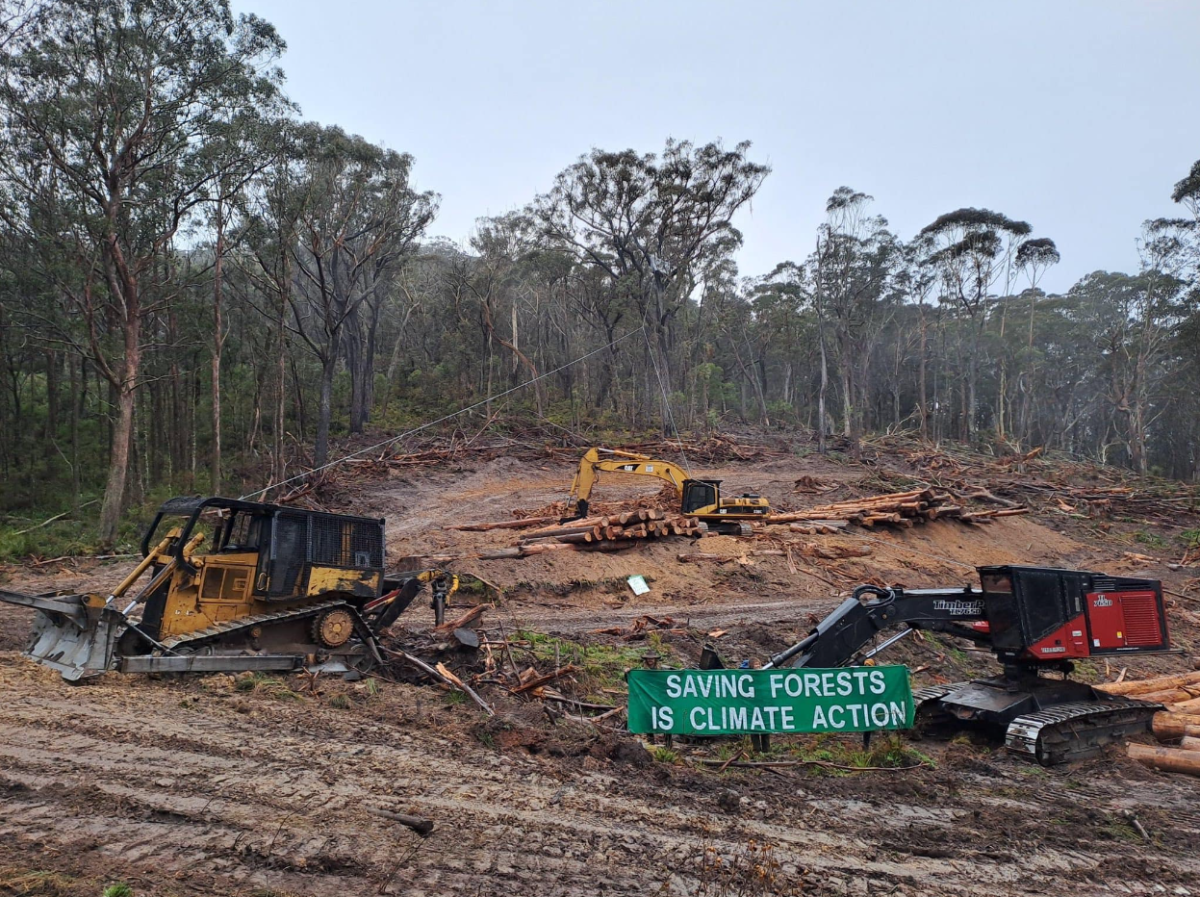
World Wide Fund for Nature-Australia says it took this image of logging in Tallaganda State Forest. Photo: World Wide Fund for Nature-Australia.
It is not yet known how the glider died, but EPA acting executive director operations Steve Orr said the discovery was extremely concerning given gliders’ increased reliance on unburnt areas of the forest following the Black Summer bushfires in 2019-2020 and the body’s proximity to active harvest operations.
He said greater gliders sheltered in multiple tree cavities, known as ‘den trees’. FCNSW is required to protect den trees and implement 50-metre exclusion zones around identified trees.
“While community reports suggest around 400 southern greater gliders may be living in the Tallaganda State Forest, FCNSW has identified only one den tree and we are not confident that habitat surveys have been adequately conducted to ensure all den trees are identified,” Mr Orr said.
FCNSW has been ordered to immediately cease all harvesting, haulage operations, and any road and track construction work in the areas of concern in the Tallaganda State Forest. The order lasts for 40 days and can be extended.
The WWF commended the NSW Environment Minister Penny Sharpe and the NSW EPA for a swift investigation.
“We are deeply upset, but not surprised that a dead greater glider was found just 50 metres from logging operations,” WWF-Australia chief conservation officer Rachel Lowry said.
“What this case demonstrates is that if Australia wants to live by our nation’s commitment to zero extinctions, we really do need to accelerate nature law reforms and ensure that regional forestry agreements are included as part of that package.
“The NSW Government has an opportunity to fast-track a commitment to transitioning to native timber harvesting. There are better solutions than what we have witnessed this week in Tallaganda.”
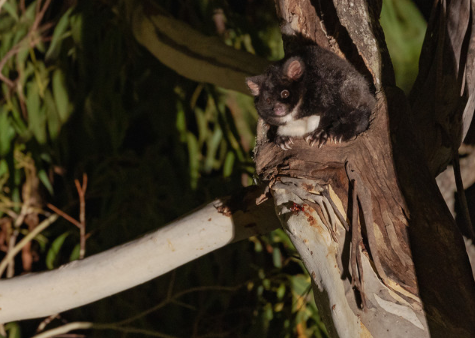
A greater glider spotted in Tallaganda State Forest. Photo: World Wide Fund for Nature-Australia.
A spokesperson for FCNSW said protecting greater glider habitat was crucial and the corporation had spent many months preparing for these operations through intensive pre-harvest surveys to identify and map sensitive habitat and ecological features.
“During the harvesting operation Forestry Corporation ensures the habitat for gliders such as hollow-bearing trees and retention clumps are protected,” the spokesperson said.
“Forestry Corporation is fully complying with the stop work order and its compliance team is on site investigating.
“We are fully committed to investigating what has occurred and finding out what the circumstances are around the greater glider found dead in the forest.”
According to the State Government, the greater glider is endangered in NSW.
It is the largest gliding possum in eastern Australia, weighing up to 1.7 kg, and can glide for up to 100 metres. It also shelters in tree hollows and uses up to 18 hollows in its home range.
The Government says threats to its species include a loss of habitat and the loss of hollow-bearing trees.







